Best of 2024: Film | reviews, news & interviews
Best of 2024: Film
Best of 2024: Film
theartsdesk's movie critics pick their favourites from the last 12 months
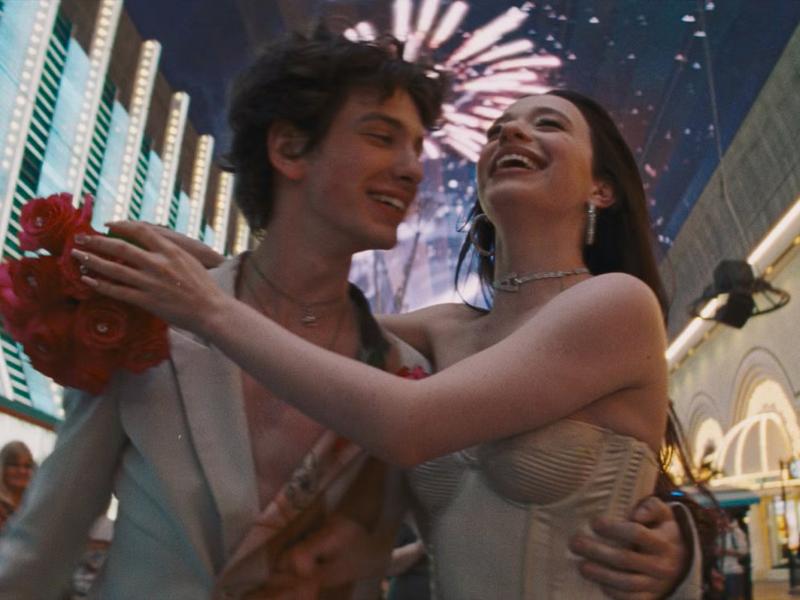
Saskia Baron
Anora
Between the Temples
Io Capitano
Dahomey
Emilia Perez
Green Border
Io Capitano
Monster
A Normal Man
Soundtrack to a Coup d’Etat
The usual perverse list unfolds. Two beautifully made and thought-provoking films about emigration, an intermittently brilliant exploration of attitudes to disfigurement, a helter-skelter drama about a sex worker, a Jewish romance that everyone I recommended it to hated, two post-colonial documentaries made with extraordinary skill, a heart-stopping childhood drama. and the first opera to be made about a trans drug baron. Sorry to leave out Hit Man, Kneecap, and American Fiction, but apparently 13 is unlucky… .
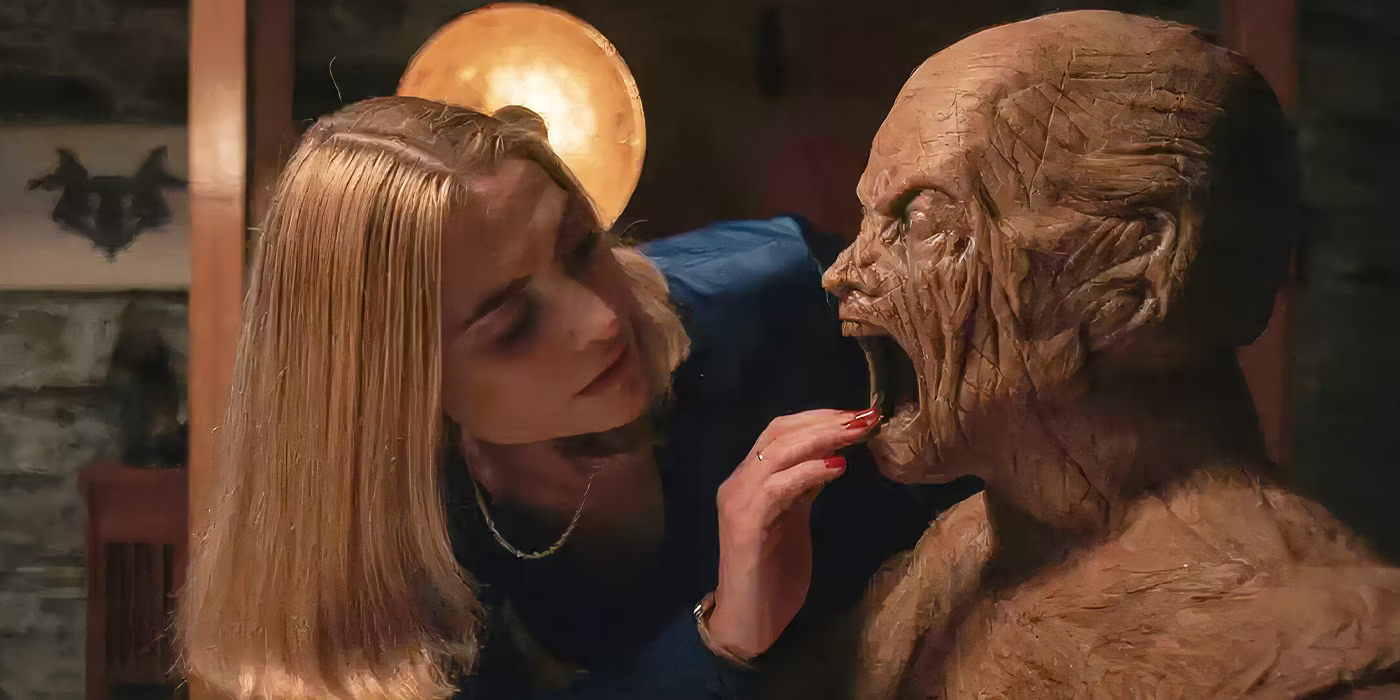 Justine Elias
Justine Elias
All Of Us Strangers
Do Not Expect Too Much from the End of the World
Made in England: The Films of Powell and Pressburger
Oddity
Love Lies Bleeding
Timestalker
I Saw The TV Glow
The Promised Land
Evil Does Not Exist
Notes from Sheepland
British and Irish filmmakers, inspired (or scarred) by 1970s folk horror, are at the forefront of the genre’s revival. For straight-up terror, though, look to Oddity, the outstanding second film directed by Damian McCarthy. It delivers creeping dread, genuine shocks, and a devious double performance by Carolyn Bracken as identical twins with starkly different personas. When one dies, the other – an arts-and-crafts curio collector with second sight – summons a supernatural weapon. This is handmade horror at its best. (Pictured above: Oddity)
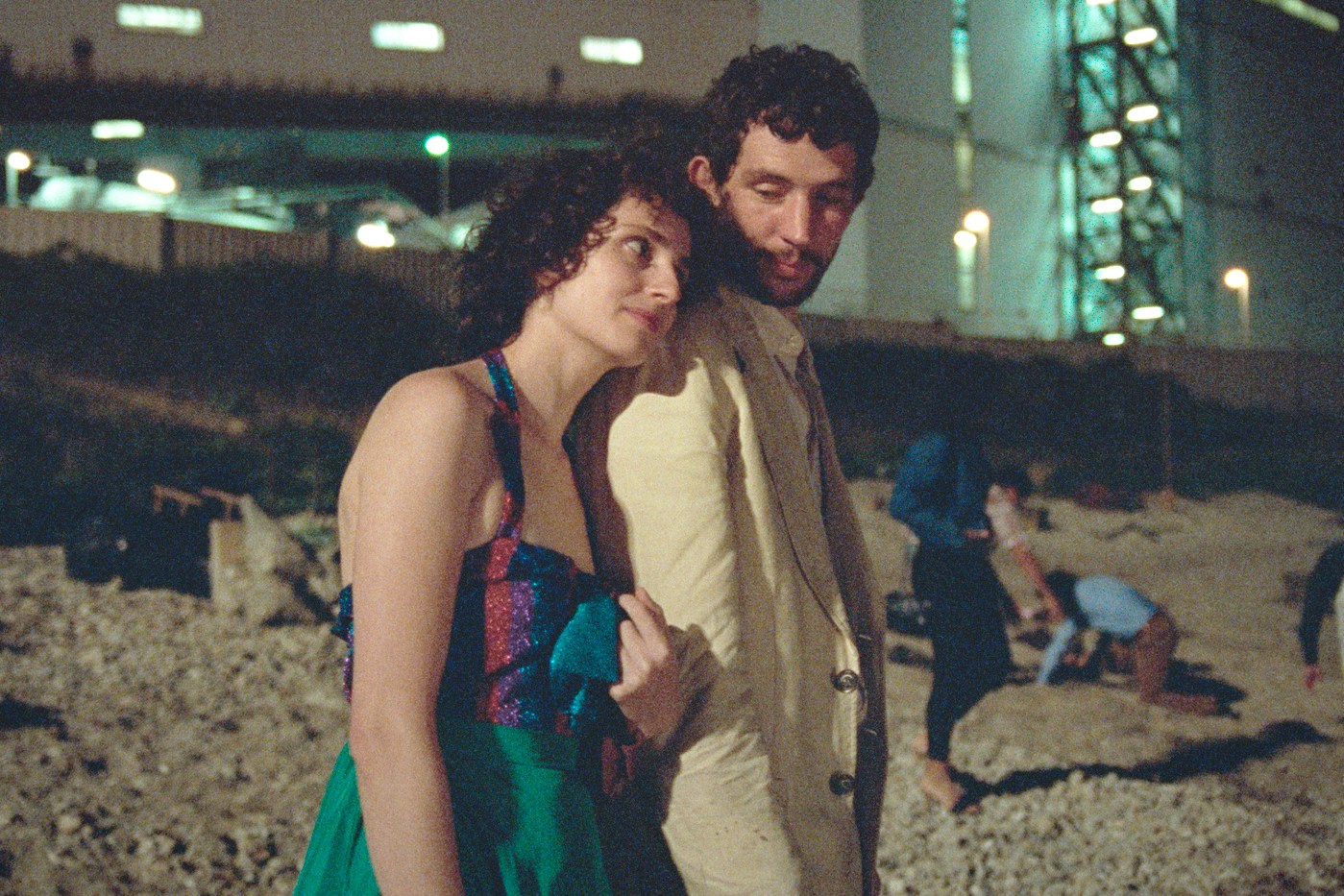
Graham Fuller
About Dry Grasses
All We Imagine as Light
Anora
La Chimera
Close Your Eyes
Green Border
I Saw the TV Glow
No Other Land
The Settlers
The Zone of Interest
Though radically different, The Settlers, The Zone of Interest, Green Border, and No Other Land stare into the abyss – collectively, they’re a storm warning for our times. Silver Haze, Hoard, Chuck Chuck Baby, and Bird didn’t make my list, but they show that scrappy stories of working-class women are the beating heart of current British cinema. Alice Rohrwacher's La Chimera is film poetry for the lovelorn. Payal Kapadia’s All We Imagine as Light – the Mumbai city symphony that zeroes in on the circumscribed lives and dawning solidarity of three women hospital workers – feels like the work of a visionary director. (Pictured above: La Chimera)
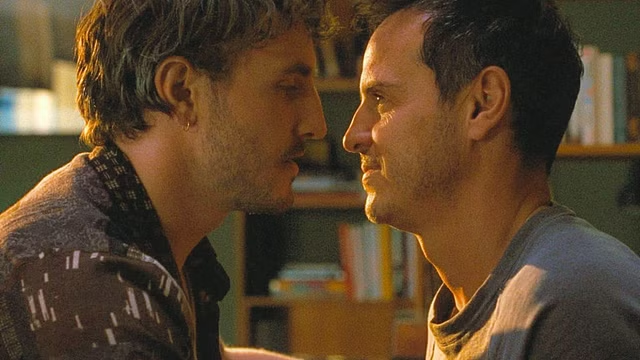
Nick Hasted
All Of Us Strangers
Perfect Days
About Dry Grasses
Evil Does Not Exist
The Zone of Interest
There’s Still Tomorrow
La Chimera
Queer
The Dead Don’t Hurt
All You Need Is Death
Andrew Haigh’s All Of Us Strangers confirmed his capacity to turn cinemagoing into an emotionally ravishing, purging experience, equivalent to the magic spell cast on a brief encounter between Andrew Scott and Paul Mescal, which bleeds into a blessed haunting. Wim Wenders’ Perfect Days adopted its Tokyo toilet cleaner’s Zen humanity, while my other favourites found their own immersive senses of time and so reality, Nuri Bilge Ceylan’s About Dry Grasses most of all, or offered rich genre surprise, from Paola Cortellesi’s musical subversion of Italian misogyny There’s Still Tomorrow to Viggo Mortensen’s elegant Western The Dead Don’t Hurt. (Pictured above: All of Us Strangers)

Helen Hawkins
All of Us Strangers
All We Imagine as Light
Anora
Crossing
Emilia Perez
Janet Planet
On Becoming a Guinea Fowl
The Holdovers
The Outrun
The Zone of Interest
It hasn’t been a year full of outright masterpieces for me, among the films I saw, except for The Zone of Interest and All We Imagine as Light, but the other eight could have been joined by another handful of titles I’d class as "seriously good”. Those include La Chimera, About Dry Grasses, The Taste of Things, The Goldman Case and Evil Does Not Exist. Four of my top 10, I realised after choosing them, are directed by women. (Pictured above: All We Imagine as Light)

Markie Robson-Scott
All of Us Strangers
Anora
Blitz
Conclave
Kinds of Kindness
Memory
Reawakening
That They May Face the Rising Sun
Woman of the Hour
The Zone of Interest
An exploration of the banality of evil seems more necessary than ever these days, and once again, Sandra Hüller, star of last year’s Anatomy of a Fall, delivers a brilliant, nuanced performance as the wife of an Auschwitz commandant in Jonathan Glazer’s chilling The Zone of Interest. At the other end of the spectrum, That They May Face the Rising Sun, Pat Collins’s lyrical adaptation of John McGahern’s last novel, is a peaceful antidote to the world and its horrors: a rural Irish community in the Seventies where the silences, and the trees and hills, are as important as the dialogue. (Pictured above: The Zone of Interest)
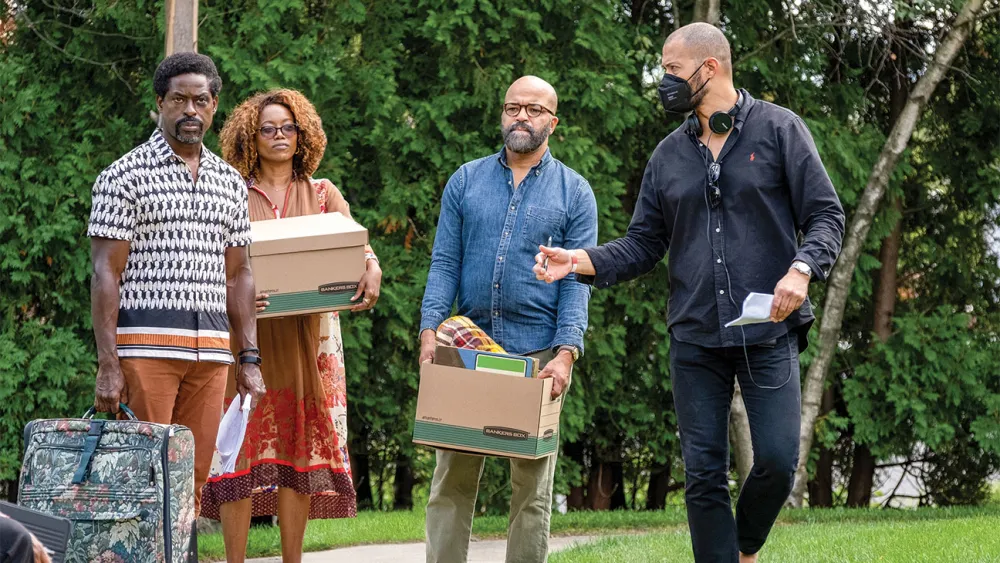
James Saynor
All We Imagine as Light
American Fiction
Do Not Expect Too Much From the End of the World
Green Border
Io Capitano
Kneecap
La Chimera
On Becoming a Guinea Fowl
There’s Still Tomorrow
The Zone of Interest
People say writers should write what they know and filmmakers should film what they know, but that may be less than ideal when all the writers and filmmakers are men. Fortunately, women are now providing many of the most interesting movies, and it feels as though the cinema world is shifting on its axis a little. Perhaps I should have been more generous to the famous male auteurs, Yorgos Lanthimos and Luca Guadagnino, who delivered two pictures each this year, but I couldn’t quite bring myself to be so. (Pictured above: American Fiction)
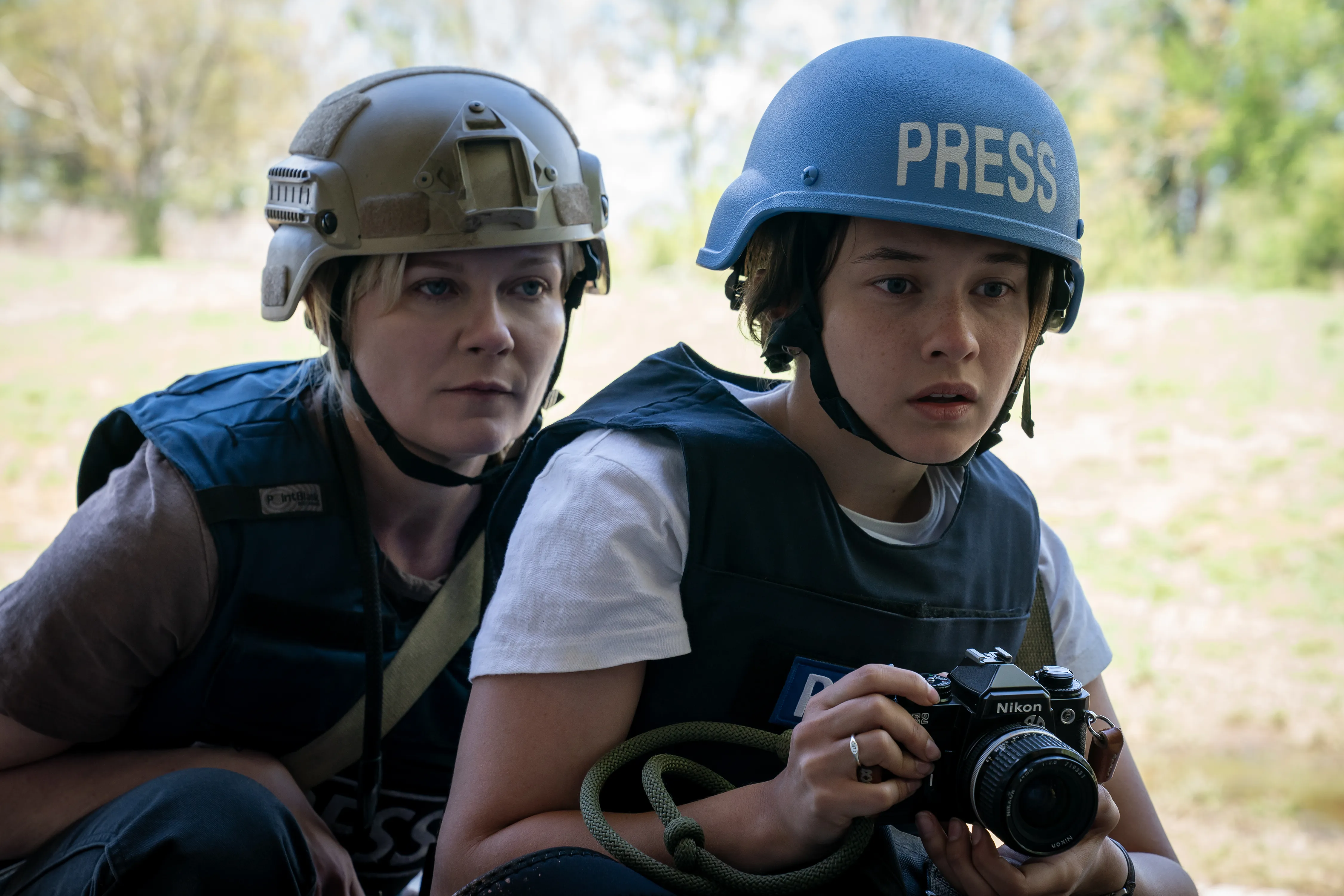
Adam Sweeting
Argylle
Carry-On
Civil War
Conclave
Fly Me to the Moon
Poor Things
Stevie Van Zandt: Disciple
Twisters
Wilding
The Zone of Interest
In a year when great expectations fell flat (Blitz, Gladiator 2), there were some unexpected delights. Wilding was an inspiring account of nature being reborn at a West Sussex farm, while Carry-On (starring not Sid James, but Taron Egerton and Jason Bateman) was an exhilaratingly taut thriller which became an instant hit for Netflix. Sky’s Stevie Van Zandt documentary was a reminder that there was more to Asbury Park than just Bruce Springsteen, while the Emma Stone/ Yorgos Lanthimos pairing delivered the fantastical Poor Things. And Edward Berger’s Conclave blended screenplay, location and cast to symphonic effect. (Pictured above: Civil War)
- More film on theartsdesk
Explore topics
Share this article
The future of Arts Journalism
You can stop theartsdesk.com closing!
We urgently need financing to survive. Our fundraising drive has thus far raised £49,000 but we need to reach £100,000 or we will be forced to close. Please contribute here: https://gofund.me/c3f6033d
And if you can forward this information to anyone who might assist, we’d be grateful.

Subscribe to theartsdesk.com
Thank you for continuing to read our work on theartsdesk.com. For unlimited access to every article in its entirety, including our archive of more than 15,000 pieces, we're asking for £5 per month or £40 per year. We feel it's a very good deal, and hope you do too.
To take a subscription now simply click here.
And if you're looking for that extra gift for a friend or family member, why not treat them to a theartsdesk.com gift subscription?
more Film
 Oslo Stories Trilogy: Dreams review - love lessons
First love's bliss begins a utopian city symphony
Oslo Stories Trilogy: Dreams review - love lessons
First love's bliss begins a utopian city symphony
 theartsdesk Q&A: filmmaker Dag Johan Haugerud on sex, love, and confusion in the modern world
The writer-director discusses first-love agony and ecstasy in 'Dreams', the opening UK installment of his 'Oslo Stories' trilogy
theartsdesk Q&A: filmmaker Dag Johan Haugerud on sex, love, and confusion in the modern world
The writer-director discusses first-love agony and ecstasy in 'Dreams', the opening UK installment of his 'Oslo Stories' trilogy
 Blu-ray: Two Way Stretch / Heavens Above
'Peak Sellers': two gems from a great comic actor in his prime
Blu-ray: Two Way Stretch / Heavens Above
'Peak Sellers': two gems from a great comic actor in his prime
 Late Shift review - life and death in an understaffed Swiss hospital
Petra Volpe directs Leonie Benesch in a compelling medical drama
Late Shift review - life and death in an understaffed Swiss hospital
Petra Volpe directs Leonie Benesch in a compelling medical drama
 The Naked Gun review - farce, slapstick and crass stupidity
Pamela Anderson and Liam Neeson put a retro spin on the Police Squad files
The Naked Gun review - farce, slapstick and crass stupidity
Pamela Anderson and Liam Neeson put a retro spin on the Police Squad files
 theartsdesk Q&A: actor Lars Eidinger on 'Dying' and loving the second half of life
The German star talks about playing the director's alter ego in a tormented family drama
theartsdesk Q&A: actor Lars Eidinger on 'Dying' and loving the second half of life
The German star talks about playing the director's alter ego in a tormented family drama
 The Fantastic Four: First Steps review - innocence regained
Marvel's original super-group return to fun, idealistic first principles
The Fantastic Four: First Steps review - innocence regained
Marvel's original super-group return to fun, idealistic first principles
 Dying review - they fuck you up, your mum and dad
Family dysfunction is at the heart of a quietly mesmerising German drama
Dying review - they fuck you up, your mum and dad
Family dysfunction is at the heart of a quietly mesmerising German drama
 theartsdesk Q&A: director Athina Rachel Tsangari on her brooding new film 'Harvest'
The Greek filmmaker talks about adapting Jim Crace's novel and putting the mercurial Caleb Landry Jones centre stage
theartsdesk Q&A: director Athina Rachel Tsangari on her brooding new film 'Harvest'
The Greek filmmaker talks about adapting Jim Crace's novel and putting the mercurial Caleb Landry Jones centre stage
 Blu-ray: The Rebel / The Punch and Judy Man
Tony Hancock's two film outings, newly remastered
Blu-ray: The Rebel / The Punch and Judy Man
Tony Hancock's two film outings, newly remastered
 The Ballad of Suzanne Césaire review - a mysterious silence
A black Caribbean Surrealist rebel obliquely remembered
The Ballad of Suzanne Césaire review - a mysterious silence
A black Caribbean Surrealist rebel obliquely remembered
 Harvest review - blood, barley and adaptation
An incandescent novel struggles to light up the screen
Harvest review - blood, barley and adaptation
An incandescent novel struggles to light up the screen

Add comment